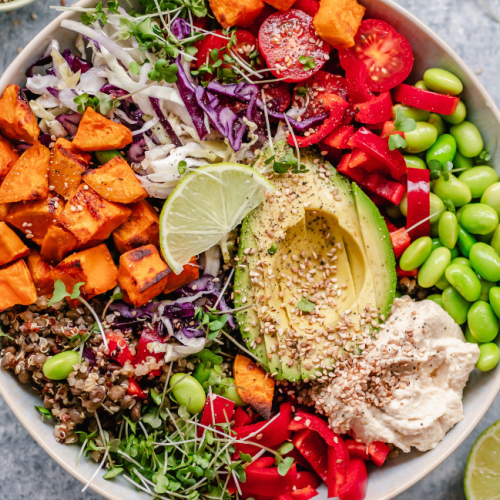Plant-Based Meat: Debunking the Myths and Making Healthy Choices
The surge in popularity of plant-based meat alternatives has ignited a fierce debate. Once a niche market, it’s now a cultural battleground, with opinions ranging from fervent support to outright rejection. This article cuts through the noise, and separates fact from fiction to provide you with the information needed to make informed choices.

Why the Backlash Against Plant-Based Meat?
A new breed of meat arrived in the last decade disrupting our dinner plates and bbq's and challenging the status quo. This new generation of plant-based meat is made from soy and pea protein yet looks, tastes and some even appears to bleed like beef hamburgers.
With a similar taste and texture of animal products, but a mere fraction of the environmental impact, and none of the animal suffering, it's no surprise these gamechanging products made a huge impact on global share markets. Yet as this new market finds its feet, consumer demand has yet to meet the high expectations. Why? Let’s dive into what’s fueling the pushback:
- Economic Impact: The animal meat industry feels threatened, and with good reason. Plant-based alternatives have been making big waves, and in response, there’s been a surge of money and effort to discredit the new lower carbon products.
- Disinformation Campaigns: Deliberate campaigns are spreading misleading information, creating confusion and steering consumers away from plant-based options to hinder market growth.
- Politics & Culture: Many men build their identity and masculinity around eating animals, and many other consumers associate plant-based meat substitutes with veganism, animal rights activism and left-wing politics.
- Taste Preferences: Some people simply prefer the taste and texture of animal products, making them resistant to trying plant-based alternatives. (Note that our taste buds are fluid little fellas and change preferences over time with exposure to new flavours)
Separating Fact from Fiction
Let's bust some of the myths about plant-based meat:
Myth 1: Plant-Based Meat is Unhealthy Processed Food
Reality: Not all processed foods are equal. Some plant-based meats may have higher levels of salt or refined ingredients, but many are made from whole foods like lentils, beans, and grains—packed with fiber, protein, and nutrients.
Overall the evidence points to plant-based meat alternatives as being healthier than the processed meat products such as burgers and sausages that they are designed as substitutes for. This is likely due to their higher dietary fibre, and lower saturated fat content.
This recent study in the Lancet found plant-based meats were not associated with higher risk of cancer, heart disease, and type 2 diabetes. However higher risk was associated with the consumption of processed animal-based products and artificially and sugar-sweetened beverages.
Myth 2: Plant-Based Meat Lacks Nutritional Value
Reality: Today’s plant-based meats are nutritional powerhouses packed with protein and dietary fibre. They’re often fortified with vitamins and minerals, sometimes even surpassing their animal-based counterparts. Top tip > Check the labels and choose wisely.
Myth 3: Plant-Based Meat Tastes Terrible
Reality: Taste is subjective, however our taste buds do change over time, and food science has come a long way. Many plant-based meats now closely mimic the texture and flavor of real meat, surprising and often fooling even the most die-hard carnivores. Don’t knock it till you’ve tried it!
Myth 4: Plant-Based Meat Production is Harmful to the Environment
Reality: While all food production has some environmental impact, plant-based meat typically leaves a MUCH smaller footprint. It uses less water, less land, and emits a lot less greenhouse gases compared to animal meat production. The environment wins here, big time.

Seitan is a great, high-protein replacement for chicken that's made from wheat!
Making Informed Choices
When selecting plant-based meat, consider the following:
- Ingredient List: Prioritise products with whole, plant-based ingredients and minimal processing.
- Nutritional Content: Check for protein, fiber, iron, b12, and other essential nutrients while minimising sodium, saturated fat, and added sugars.
- Taste and Texture: Experiment with different brands and products to find what you enjoy.
- Environmental Impact: Consider the brand's sustainability practices when making purchasing decisions.
Remember: Plant-based meat can be a valuable addition to a balanced diet, but it's not a magic solution. Combining it with a variety of plant-based foods like fruits, vegetables, whole grains, and legumes is essential for optimal health.
By understanding the facts and making informed choices, you can enjoy the benefits of a great variety of plant-based meat while maintaining a healthy and sustainable lifestyle.











15 Comments
Reply to this one... "Which ingredients specifically are you concerned with? Granted the labels can look scary though all of the ingredients have been approved as safe for human consumption, and they are almost always identical to the ingredients included in processed meat equivalents. i.e. the same preservatives, flavours, and colours added to schnitzels, burgers, sausages, nuggets or mince products made from animals."
Could never go back to eating meat.
Just walking past the horrid meat section in the shop makes me angry and extremely sad.
Thank you for sharing this information with us.
I never doubted this would cause uproar in the grubby meat industry.
And all the information is legit..
Ps. If you haven’t tried Lamyong’s salty chicken done in the airfryer then you’re missing out.
Kind regards
Craig Jackie & Emme